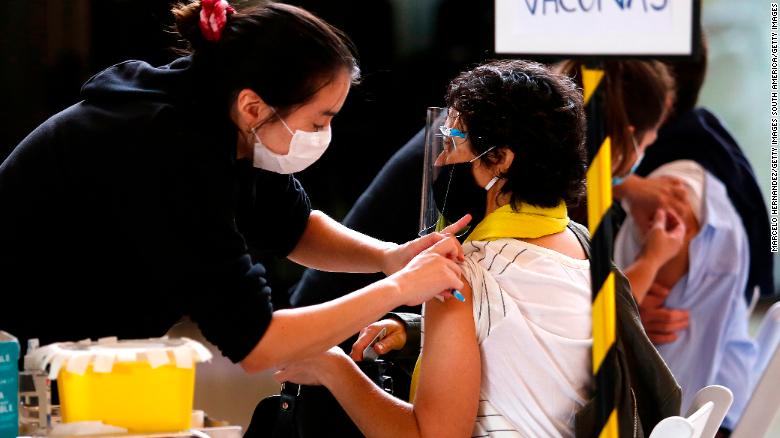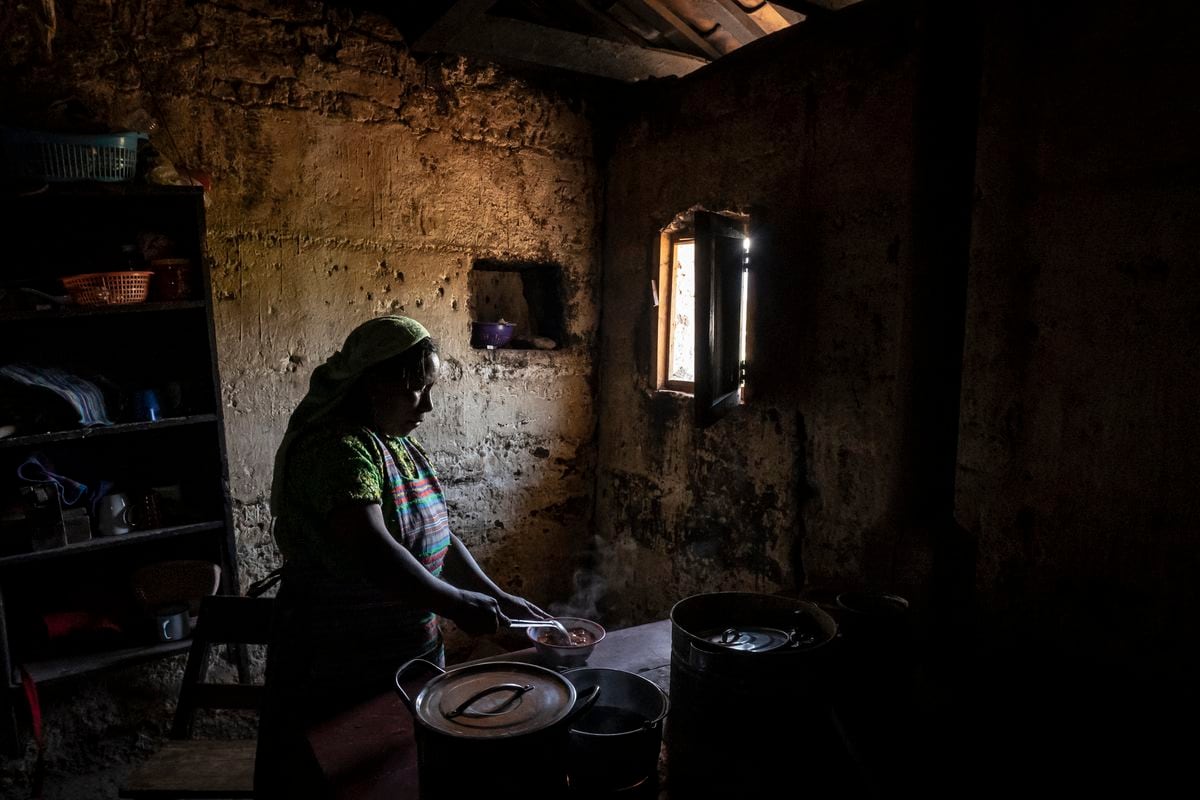The countries with the highest mortality from covid-19 in America 0:46
(CNN) -
More than 100 days after the first covid-19 vaccines were administered in Latin America, the pandemic continues to reemerge dangerously in some areas.
The battle that the region is waging to stop the coronavirus remains marked by inequalities.
While some countries boast of positive trends in vaccination, hospitals in neighboring nations collapse under waves of new cases.
Of particular concern are the high mortality rates from covid-19 in Brazil, Peru, Chile and Paraguay.
A sign that local health systems are likely under pressure beyond their capacity.
Covid-19 in Latin America: this is how the week of April 5 begins in some of the most affected countries in the region
“Mortality increases when this happens, because patients have a hard time finding the care they need.
Meanwhile, health workers are overloaded by having to care for too many people at the same time, ”explained Dr. Carissa Etienne, director of the Pan American Health Organization (PAHO), last week.
Even in countries with strong vaccine administration, equitable access to life-saving doses is far from the norm.
To this is added that health officials in Latin America fear that a new wave of covid-19 will gain momentum.
Precisely, due to the new contagious variants and, all too often, to a governmental approach of flexibility in the face of social distancing.
Latin America, between vaccination against covid-19 and rapidly spreading variants
Right now, Brazil is by far the country most affected by COVID-19 in Latin America.
The locally identified P.1 variant is believed to be more contagious than the parent coronavirus.
In fact, more than 66,000 additional deaths related to covid-19 were recorded in March alone.
This represents more than double the number of victims in any other month since the beginning of the pandemic.
advertising
Bolsonaro criticizes states that put restrictions 0:25
Meanwhile, despite Brazil's strong vaccination infrastructure, the immunization campaign is progressing at a slow pace.
Only just over 10% of the total population has received the first dose of the covid-19 vaccine, according to data from the health departments of each state.
In addition, intensive care units in 25 of the 27 states in the country are at more than 80% of capacity.
Even so, some states, such as Rio de Janeiro, decided to reopen schools, at the insistence of President Jair Bolsonaro, a staunch opponent of the lockdowns.
To try to stop the spread of Covid-19, several Latin American countries closed their borders with Brazil.
And Uruguay, for example, even prioritized vaccination in border areas with Brazil.
This in the hope of creating a "wall of vaccines" that the virus cannot penetrate.
For some countries, winter is coming
Until this week, Chile had been like a fairy tale of vaccination against covid-19 in Latin America.
This is how the new restrictions due to covid-19 in Chile will affect 2:46
Comparatively, the country began administering vaccines very early, in December.
And it quickly gained traction thanks to abundant dose supplies from manufacturers in China.
So far, Chile is the third country in the world with the highest percentage of vaccinated population, ahead of the United States.
But despite this success, Chile posted a new record for the increase in cases for two days in a row last week.
An ominous event that led the authorities to close the borders to both foreigners and Chilean citizens to try to limit the contagion.
Chile's highly praised vaccination campaign has not been able to curb the increase in new cases.
Of particular concern is the fact that Chile, along with its neighbors Argentina and Uruguay, are heading for colder temperatures in the southern hemisphere.
Precisely, COVID-19 thrives in winter conditions: both because the virus itself is more stable and contagious at lower temperatures, and because people tend to spend more time indoors during the winter months.
Authorities in Chile and Argentina are preparing for new outbreaks of the virus in the coming weeks.
Politics and public health
Meanwhile, Peru established a total lockdown last week.
And it only allowed one person per household to leave the house for essential matters.
The measure seeks to limit the impact of a third wave of the virus.
Ecuador, for its part, is also in dire straits.
Last week he declared a state of emergency in eight different provinces, due to the increase in hospitalizations for covid-19.
And nearby Bolivia, like Uruguay, is closing its borders with Brazil.
"I killed my mother": Xuxa's strong message to raise awareness about the covid-19 crisis in Brazil
In Peru, the third wave of the virus is in full swing and the numbers of new cases are growing rapidly.
In March, the country registered more cases than in any other month since the beginning of the pandemic, with the exception of August 2020, precisely the peak of the first wave.
According to an analysis by John Hopkins University, Peru has the second highest mortality rate in the world, only behind Mexico.
Meanwhile, vaccination has been passive, with only a few thousand doses administered each day.
At the current rate, it would take Peru more than a decade to achieve herd immunity through vaccination.
Now, despite efforts to keep people at home, both Peru and Ecuador hope to put behind the political upheavals of last year with new presidential elections this week.
Which means mass gatherings across the country.
Despite the resurgence of the virus, none of the governments have asked for the votes to be postponed.
Covid-19 Pandemic















